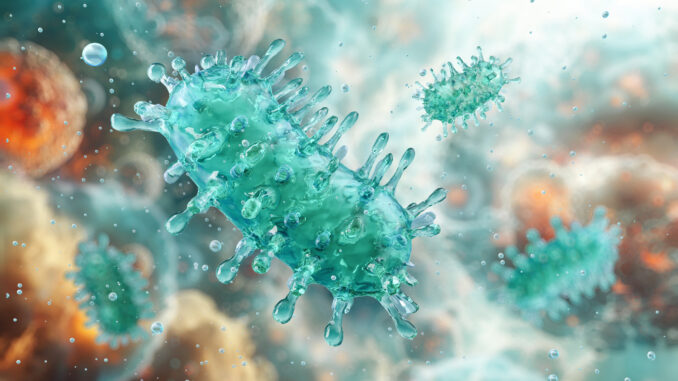
Public Urged to Take Precautions, Vaccinate Pets
The Suffolk County Department of Health Services reported that a dead raccoon found in Amityville on October 18 tested positive for rabies. The confirmation was received from the Wadsworth Center at the New York State Department of Health. There was no human contact with the raccoon.
This is the 15th confirmed case of locally acquired terrestrial rabies reported in Suffolk County this year, including one feral cat. All other cases were raccoons. To date, nine rabid animals were found in the Amityville area, three in Deer Park, two in Lindenhurst, and one in Wyandanch. The first rabid raccoon was reported on January 28, 2025. Prior to 2025, Suffolk County had not reported locally acquired terrestrial rabies since 2009.
“At this time, if you live in the western portion of Suffolk County, mind your pets, and if you see a stray animal that looks sick or injured, call us or the state Department of Environmental Conservation, as that animal could have rabies,” said Dr. Gregson Pigott, Suffolk County’s health commissioner. “Our surveillance continues, and we are hopeful that in time our raccoon rabies baiting program will reduce and eventually eliminate terrestrial rabies in Suffolk County.”
Rabies is a viral disease transmitted from infected mammals to humans. Left untreated, it can lead to death. Early symptoms include irritability, headache, fever, and sometimes itching at the site of exposure. Within days, the disease progresses to paralysis, spasms of the throat muscles, convulsions, delirium, and death.
People can get rabies if they are exposed to the saliva or nervous tissue of a rabid animal through a bite. It is also possible, although rare, that people can get rabies if infectious material, such as saliva, from a rabid animal, gets directly into their eyes, nose, mouth, or a wound.
New York State and Suffolk County law requires that all dogs, cats and ferrets be vaccinated against rabies. Vaccinating your pet not only provides protection for the animal, but vaccinated pets act as a barrier to keep the rabies virus from spreading between wild animals and people. It is very important to make sure that these animals, as well as livestock and horses, have current rabies vaccinations.
To further protect yourself and your family from possible exposure to rabies:
Keep dogs, cats, and ferrets on a leash and keep livestock confined in the evening.
• Do not have contact with any animal other than your own.
• Do not feed wildlife or stray animals and discourage them from seeking food near your home.
• Do not touch dead or dying animals. Use a shovel, wear rubber gloves and double bag the carcass, if you need to move them.
• Do not approach an unknown animal, either wild or domestic, especially if it is acting unusually.
• Keep garbage cans tightly covered and avoid storing any food outside.
• Children should be advised to tell an adult immediately if they were bitten or scratched by any animal.
To prevent the possible spread of the rabies virus, no one, including trappers and nuisance wildlife rehabilitators, should transport and relocate any wild animals at this time.
The public is asked to report sightings of abnormally acting raccoons to the Suffolk County Police Department by calling 631-852-COPS or the New York State Department of Environmental Conservation at 631-444-0250.
Report all animal bites or contact with wild animals to the Suffolk County Department of Health Services at 631-854-0333 on weekdays, 9:00 a.m. to 4:30 p.m. Outside of normal business hours, report animal bites or contact with wild animals to the department at 631-852-4820. If possible, contain the animal so that it can be tested.
Anyone who lives in Babylon, Huntington, Islip, or Smithtown, and encounters a dead raccoon, should report it to php@suffolkcountyny.gov or call 631-852-5900 Monday through Friday from 9 a.m. to 4:30 p.m.

